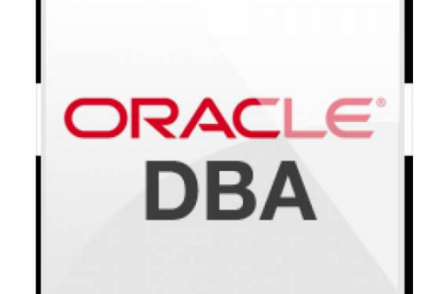Systems Administrator’s are at the core of IT infrastructure support for most major companies. Even smaller companies will usually require – at a minimum – an experienced Systems Admin to maintain day-to-day operations and ensure the maximum up-time. As one of the more well known IT positions, Systems Admins have a mature job market with plenty of opportunities in almost every region. Their salaries have held steady or increased over the past few years. The Systems Administrator career path is what most IT professionals in lower levels of support desire to attain. While a junior SA can be fresh out of college, most SA’s are at the mid-point in their careers.
In the following resource page, we have gathered the critical information about a typical Systems Administrator job description and what you can expect for a salary.
Types of Systems Administrators
Before going further, it can be helpful to distinguish between the different varieties of systems administrator positions out there. In some IT shops, all of the responsibilities will be held in one position, but in many larger IT shops the roles are divided out into the following specific functional areas:
Windows Administrator
This is by far the most common type of administrator. Microsoft and their Windows platform is ubiquitous so it follows that the demand for Windows administrators has remained high. Windows Admins work with Windows Server and Active Directory. Windows Administrators might also be involved with administration of deployment tools such as Microsoft System Center. Scripting is usually helpful, with PowerShell being the most widely used.
Linux/UNIX Administrator
Linux or UNIX administrators are generally an older breed. Many companies still rely heavily on their legacy UNIX systems and applications. They certainly hold a smaller slice of the market share than Windows, but most larger companies still have critical components in the Linux/UNIX domain.
For many companies they do this as a form of redundancy, not wanting to be over-reliant on one technology. In general, these systems administrators tend to be older and more experienced. While demand is still steady, it is not as easy to break into the field as a Linux/UNIX SA. However, larger corporations still carry a slew of dedicated UNIX administrators. In recent years, many Linux/UNIX folks have started picking up Windows proficiency as a job security measure. A UNIX/Linux SA will be expected to know some scripting (BSH, KSH, etc…) and be familiar with a variety of “flavors” i.e. RedHat Linux or Solaris UNIX.
Virtual Administrator
As virtual technologies have become commonplace in recent years, there has been a search in interest for virtual admin skill sets. In many cases this is rolled up in one of the above roles, but there are increasing numbers of stand alone VMWare, Citrix. Hyper-V, and VirtualBox administrators. Sometimes companies will break it down further and specifically hire VMWare administrators (or Citrix, Hyper-V…), responsible specifically for maintaining and designing the VMWare environment.
Storage Administrator
Similarly to Virtual Admins, a Storage Administrators job responsibility can often be rolled up under a UNIX or Windows SA job title. Still, it is quite common for larger companies to have dedicated storage experts on hand. Storage – or SAN – Administrators typically have responsibility for the various storage products. Some of the more popular ones are EMC, Clarion, VMAX, VNX, Dell Blades, NetApp, etc…
Systems Administrator Job Description
In general, the following is a template for what the average systems administrator is responsible for, regardless of specialization.
For most SA roles, the job functionality comes down to three different components. First, Engineering and Provisioning encompasses the installation and implementation of new servers, directories, storage systems, hardware, etc… This tends to be more of a “project based” function. Some junior SAs will only be participants in this process, but mid to senior level ones will invariably start focusing on engineering, design, and implementation strategy as well. Most Systems Administrators will be responsible for identifying and researching (as well as implementing) new systems.
Second, Operational Support refers to the ongoing day-to-day functioning of the systems. SAs will use monitoring tools to ensure maximum up-time and respond to incidents in a timely manner. Automating repeatable tasks is a critical component for progressive IT departments as well, so scripting experience comes in handy here. Another key component is replication, or backing up daily operations to create redundancy in the event that disaster recovery is needed. Many times, Systems Administrators fill in as the highest tier of technical support, frequently participating in 24/hr. on call rotations with the rest of the team.
Finally, Maintenance is the last component within this role. Many companies have older legacy systems that require upgrades, smaller migrations and various asset management tracking. For example, upgrading an entire companies OS from Windows 7 to Windows 8 might be one long term maintenance goal. Or, on a smaller scale, clearing out older data and bandwidth that is no longer needed. In every company, maintenance is critical to the longevity and long term efficiency of their systems.
Systems Administrator Educational Requirements
Systems Administrator’s do not – by definition – require a degree. However, many larger enterprises prefer IT professionals at this level to have a 4-year Bachelor’s degree in an IT related discipline.
Systems Administrator Certifications
There are a variety of very useful certifications available for Systems Administrators. Many companies WILL require at least a certification in the core discipline of the job i.e. a Windows SA will probably require – or at least desire – an MCSA or MSCE cert.
The following are some of the common certifications available to Systems Administrators:
- MCSA – Microsoft Certified Systems Administrator
- MCSE – Microsoft Certified Systems Engineer
- RHCE – Red Hat Certified Engineer (Linux)
- VCP5 – VMWare Certified Professional (Virtualization)
- CompTIA Server +
- Other Certifications specific to certain products (EMC, for example)
Systems Admin Salary Guide
The following are some rough salary guidelines to follow. Keep in mind that it will vary significantly depending on your geographic region and market.
Mid-Level Systems Administrator Salary
| Avg. Entry Level | Avg. Mid Career | Peak/Maximum |
|---|---|---|
| $55,500 | $73,900 | $92,500 |
Senior Level Systems Administrator Salary
| Avg. Entry Level | Avg. Mid Career | Peak/Maximum |
|---|---|---|
| $69,900 | $90,400 | $108,700 |
Systems Administrator vs Network Administrator – What’s the Difference?
Many Systems Admins also wear the hat of Network Admins as well, but in many companies – particularly larger ones – these two roles are distinct. In general, your Systems Administrators will be responsible for maintaining the Windows (or UNIX) environment. Typically, an SA will be involved with primarily server administration and domain administration. Some SAs will also have responsibility for maintaining storage systems (both local and area), as well as virtual administration (VMWare, Hyper-V, etc…). Systems Administrator’s tend to be more senior than Network Administrators, but there is significant crossover and variance across companies. Ultimately, a Systems Admin might move on to a Systems Engineer role or at least a Senior SA capacity where design and system architecture come into play.
Network administrators are usually involved with routers/switches (Cisco or Juniper, for example), VPNs (virtual private networks), load balancing, QoS (Quality of Service) and sometimes VoIP networks. They can be involved with storage administration as well and typically have responsibility for protocols such as BGP and OSPF. At this end of the spectrum, there is significant cross-over with a Network Engineering role. Typically and Network Admin will progress to a engineering level role where he/she is responsible not just for the administration, but also the engineering (design) and implementation of new systems.
- CCNA vs CCNP-Which Certification is Best for You? - March 30, 2021
- The Network Administrator Job Description and Salary Guide - July 21, 2020
- Health Information Management Job Description and Salary Expectations - December 14, 2019





No Comments